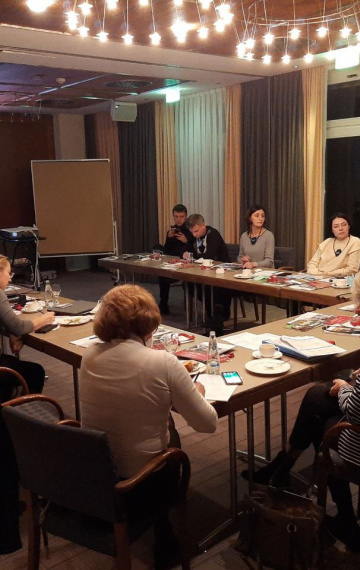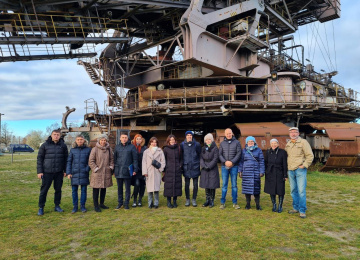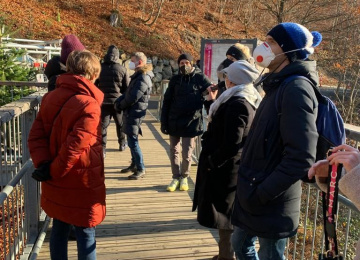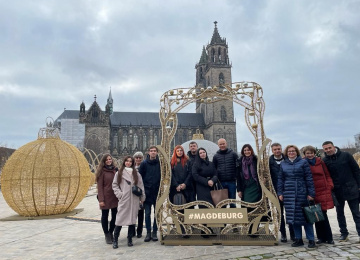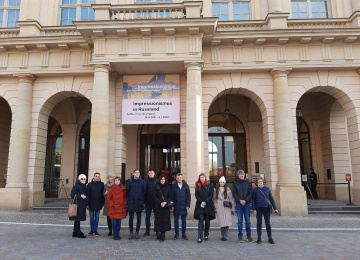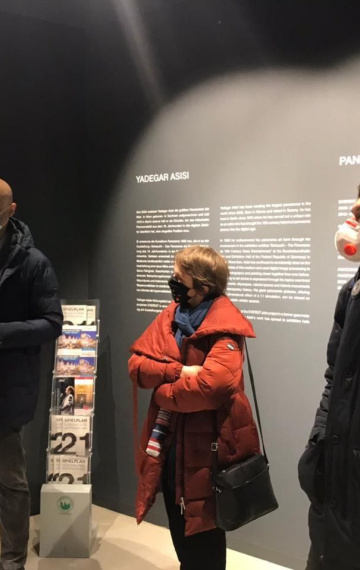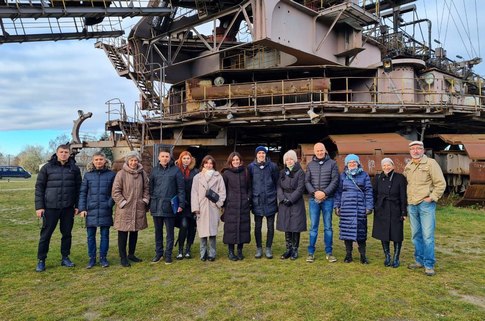
Nine representatives of local governments from Kremenchuk, Brovary and Uzhhorod spent a week-long study tour in five German cities whose economies depend on the development of local tourism, crafts and the creative industries. This visit, part of the EU4Business: Competitiveness and the internationalization of SMEs program is intended to help local communities carry out their own tourism projects in Ukraine.
During the study tour, the participants visited the Wittenberg City Council where Mayor Jochan Kirchner explained how local government agencies supported businesses during the pandemic. Meeting with members of tourism unions, centres and associations, the visitors were able to talk about how to promote a city as a tourist destination, collaborate, and engage local stakeholders in tourism, crafts and the creative industries.
The tourism association of the World Heritage Anhalt-Dessai-Wittenberg region, the strategic marketing agency for the development of the city of Goslar, which is also on UNESCO’s World Heritage list, and the Saxony-Anhalt regional association of tourism also shared their experience. They all are dedicated to making tourist sites in Germany more visible and attractive.
The Ukrainian delegation also visited a number of interesting locales and found out how everything was organized: how the site was launched, who supported it, and how funding was found.
- The open-air Ferropolis museum, Gräfenhainichen. Today, festivals and concerts take place at this one-time coal mine.
- The Wittenberg Panorama 360º museum. Built as a five-storey cylinder, the building offers a wonderful panorama of the entire city to the accompaniment of music and light shows.
- The Baumwipfelpfad Harz Park, Bad-Harzburg. Visitors can wander town wooden bridges at the crown of this mountain forest and to discover the nature and culture of the Harz Mountains in a series of 33 entertainment stations.
- The Torfhaus National Park Tourist Centre, Torfhaus. This is the starting point for getting to the legendary mountain desert near the foothills of Mt. Brocken—after visiting an exhibition and learning about the geological features of the local area.
- The Barberini Museum, Potsdam. The art museum in the historic centre offers international exhibits and a collection of impressionist art: masterpieces by Monet, Renoir, Morisot, Caillebotte, and Signac.
“In every town on our tour we discovered about models of self-sufficiency,” says Pavlo Logvinov, Director of Economic Development at Uzhhorod City Council. “In the next while, we plan to bring up for public discussion the idea of developing five kiosks as local information centres. Our city also wants to ‘steal’ an idea from the mountain town of Goslar and the city of Wittenberg to work on eco-tourism and shared tourist subscriptions to museums.”
“What impressed me,” says Pavlo Bedratskiy, Director of the Kremenchuk Institute for Development, “was the multi-level approach to structuring tourism in Germany. It starts with an ordinary tourist information booth in a small town and ends with major agencies that operate at the national level. We could also institute this kind of thing in Ukraine, although it does means changing legislation. For the Kremenchuk community, the open-air industrial museum in Gräfenhainichen, Ferropolis, is very interesting. Turning a one-time industrial site and a mining quarry into a modern tourist site could be the launching pad for developing our own tourism infrastructure, because Kremenchuk also has abandoned quarries and industrial zones.
The study tour inspired participants with new ideas about developing tourism, crafts and the creative industries in their own cities. They will now be able to embody this experience by carrying out their own projects under the EU4Business: Competitiveness and the internationalization of SMEs program, as well as in their further professional activities in community development. This is just the beginning.
Background:
This study tour under the EU4Business: Competitiveness and the internationalization of SMEs program was co financed by the European Union and the Government of Germany and implemented by the Deutsche Gesellschaft für Internationale Zusammenarbeit (GIZ) GmbH. The purpose of the program is to provide better conditions for the development of SMEs in Ukraine, support innovation and spur exports, which is the pathway to sustainable, balanced economic growth. For more about the program, visit: https://bit.ly/33a33zQ

